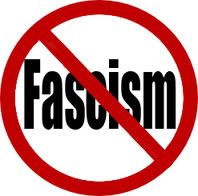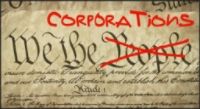30 New Hampshire Towns Have Spoken, Called for a Resolution to Overturn Citizens United
Source: NH Labor News
Town meeting votes this week confirmed what many already knew: The people of New Hampshire want to free elections from the choke hold that corporations and mega-donors have on our democracy. So far, at 30 town meetings, citizens have passed – most by a vast majority – a warrant calling for a constitutional amendment to overturn the 2010 U.S. Supreme Court ruling in Citizens United v. Federal Election Commission. More votes are coming; citizens in at least 19 towns vote on resolutions this week and results are still outstanding from towns that have held votes.
Given this clear indication of strong support by the people of New Hampshire, it is time for the state Legislature to follow their lead by passing similar legislation and make New Hampshire the 17th state to call for an amendment to overturn Citizens United. That ruling gave corporations the green light to spend unlimited amounts of money to influence elections, thereby drowning out the voices of everyday Americans. The influence of corporations and the wealthy was starkly apparent during New Hampshire’s 2012 gubernatorial race, when outside groups spent $19 million – almost five times what the candidates spent themselves.
FULL story at link.
Read more: http://nhlabornews.com/2014/03/30-new-hampshire-towns-have-spoken-called-for-a-resolution-to-overturn-citizens-united/
If you liked this post consider subscribing to the NH Labor News via email. There are more great articles to come.
About NH Labor
The New Hampshire Labor News is a group of NH Workers who believe that we need to protect ourselves against the attacks on workers. We are proud union members who are working to preserve the middle class. The NHLN talks mostly about news and politics from NH. We also talk about national issues that effect working men and women here in the Granite State.

Blue_Tires
(55,445 posts)Dustlawyer
(10,495 posts)Demand Complete Campaign Finance Reform and Publicly Funded Elections. We will not regain Representative Democracy as long as we allow regular "campaign donations" (bribes) and teams of favor producing Lobbyists to operate!
bemildred
(90,061 posts)shenmue
(38,506 posts)KamaAina
(78,249 posts)If not, its most famous resident, our very own Will Pitt, needs to take up the cause!
NHLabor
(70 posts)I will see if I can get a list of the towns.
NHLabor
(70 posts)Sorry i cannot post in here, it is a modified excel list.
http://www.democracyisforpeople.org/page.cfm?id=47
eallen
(2,953 posts)No one has explained to me how to amend the free press guarantee of the 1st amendment, so that Citizens United, Inc., could be regulated, but not MSNBC. Until the 1st amendment is changed, "any rule that requires the government to determine what political speech is legitimate and how much political speech is appropriate is difficult to reconcile with the First Amendment."
https://www.aclu.org/free-speech/aclu-and-citizens-united
graegoyle
(532 posts)eallen
(2,953 posts)The 1st amendment explicitly protects "the press." Removing 1st amendment protection from newspapers, publishers, news networks, movie production companies, etc., would be a pretty extreme reworking of it.
Doctor_J
(36,392 posts)these right-wing organs already have too much power, being able to lie and propagandize with absolutely no person or entity have any forum with which to correct or counter them. They don't also need to pour cash into elections.
eallen
(2,953 posts)Zorra
(27,670 posts)I’ve marched proudly behind the ACLU’s First Amendment flag for almost fifty years. On campaign finance reform, however, I believe the ACLU’s adamant opposition to limits on massive campaign spending by the superrich gets the constitutional issues wrong. Limiting the power of a few individuals and corporations that exercise disproportionate political influence solely because of their enormous wealth has nothing to do with censoring a speaker’s message; it is desperately needed to preserve the integrity of the egalitarian democracy the First Amendment was designed to protect.
The campaign finance mess rests on three erroneous arguments the ACLU advanced in the 1976 Buckley v. Valeo case before the Supreme Court: (1) that spending unlimited amounts of money in an electoral campaign is “pure” speech entitled to the highest level of First Amendment protection; (2) that any attempt to equalize political power by limiting massive electoral spending by the superrich is flatly unconstitutional; and (3) that “independent” expenditures on behalf of a candidate (as opposed to contributions to the candidate) are incapable of corrupting the democratic process. In 2010, in Citizens United, five Supreme Court justices made the Buckley system even worse by ruling that corporations have the same electoral free-speech rights as individuals, which unleashed a torrent of electoral spending by corporations seeking a financial return on their political investments.
I confess to having supported the ACLU position in Buckley. As the corrosive effects on democracy of uncontrolled campaign spending became increasingly clear, however, I joined several former ACLU leaders—Norman Dorsen, Aryeh Neier, John Shattuck and Mort Halperin—in opposing the organization’s campaign finance position. We have argued, before the Supreme Court and the ACLU board, that spending massive amounts of money during an election campaign is not “pure” speech when the spending level is so high that it drowns out competing voices by repeating the same message over and over at higher decibel levels; that a compelling interest in equality justifies preventing wealthy speakers from buying up an unfair proportion of the speech in settings like courtrooms, classrooms, town meetings, presidential debates and elections; that massive campaign spending by “independent” entities poses a serious risk of postelection corruption; and that corporations lack the attributes of conscience and human dignity that justify free-speech protection.
We’ll keep repeating those arguments. The shift of a single vote on the Supreme Court will make them law one day. But we needn’t wait for a new Court. The State of Montana has leveled a powerful challenge to Citizens United that is making its way to the Court. Since 1912, in an effort to shield its democracy from a takeover by out-of-state mining interests, Montana has banned corporate political spending. When the Montana Supreme Court recently stubbornly upheld the corporate electioneering ban in the teeth of Citizens United, corporations asked the US Supreme Court to overturn the Montana Court without a hearing. Instead, the justices temporarily stayed the Montana law and invited the parties to file papers discussing whether the case should be accepted for full-scale review. In reluctantly voting to stay the Montana statute even temporarily, justices Ruth Bader Ginsburg and Stephen Breyer asserted that Citizens United should be reconsidered because massive “independent” spending in the 2012 presidential election has undercut the assumption that such spending is incapable of corrupting democracy. The absurdity of the fiction that election winners will ignore huge debts owed to wealthy supporters who have spent millions to get them elected is now apparent even to the Supreme Court. In Caperton v. A.T. Massey Coal Co. (2009), the Court recognized that massive independent spending by a litigant to elect a member of the West Virginia Supreme Court risked influencing his postelection rulings, requiring the judge to step down in cases involving his electoral sugar daddy. Step one in untangling the current mess is persuading the Supreme Court that in light of the experience in the 2012 presidential election, unlimited independent campaign expenditures pose a significant risk of postelection corruption of elected legislators and executive officials, as well as elected judges.


eallen
(2,953 posts)In a nutshell, Citizens United was about a law (McCain-Feingold) that prohibited a corporation from making and distributing a movie.
McCutcheon is about a law (FECA) that caps an individual's political donations during election cycles.
I agree that money is not speech. Which is why McCutcheon is not just a replay of Citizens United.
![]()
Zorra
(27,670 posts)The primary difference between CU and McCutcheon is this;
In McCutcheon v. FEC, SCOTUS might allow direct campaign contributions of more than $3.5 million from a single wealthy individual.
The primary arguments in the article are these:
...We’ll keep repeating those arguments. The shift of a single vote on the Supreme Court will make them law one day."
eallen
(2,953 posts)I bet it exceeds $3.5 million. Should both it and "The Colbert Report" be removed from the air during the 2014 election cycle?
Therein lies the problem with Burt Neuborne's argument. If taken seriously, we would have to make the media dark for the months preceding an election. No step in that direction will pass SCOTUS muster.
I suspect the lawyers arguing for the FEC are making a better argument, to wit, that there is an valid legal distinction between a) a corporation or individual spending money on making and publishing their own speech, and b) someone donating to organizations for political purpose during an election cycle. Admittedly, that's not as bright a line as would be ideal, either. Where does a crowd-sourced project fall? But it at least gives the courts some legal basis for supporting contribution limits without having to rewrite the 1st amendment.
![]()
Zorra
(27,670 posts)Doctor_J
(36,392 posts)Meanwhile voter suppression gallops along.
"Down in the Banana Republics, things aren't as warm as they seem..."
- S. Goodman
question everything
(47,470 posts)Berlum
(7,044 posts)Agony
(2,605 posts)We, the People of the United States of America, reject the U.S. Supreme Court's Citizens United ruling and other related cases, and move to amend our Constitution to firmly establish that money is not speech, and that human beings, not corporations, are persons entitled to constitutional rights.